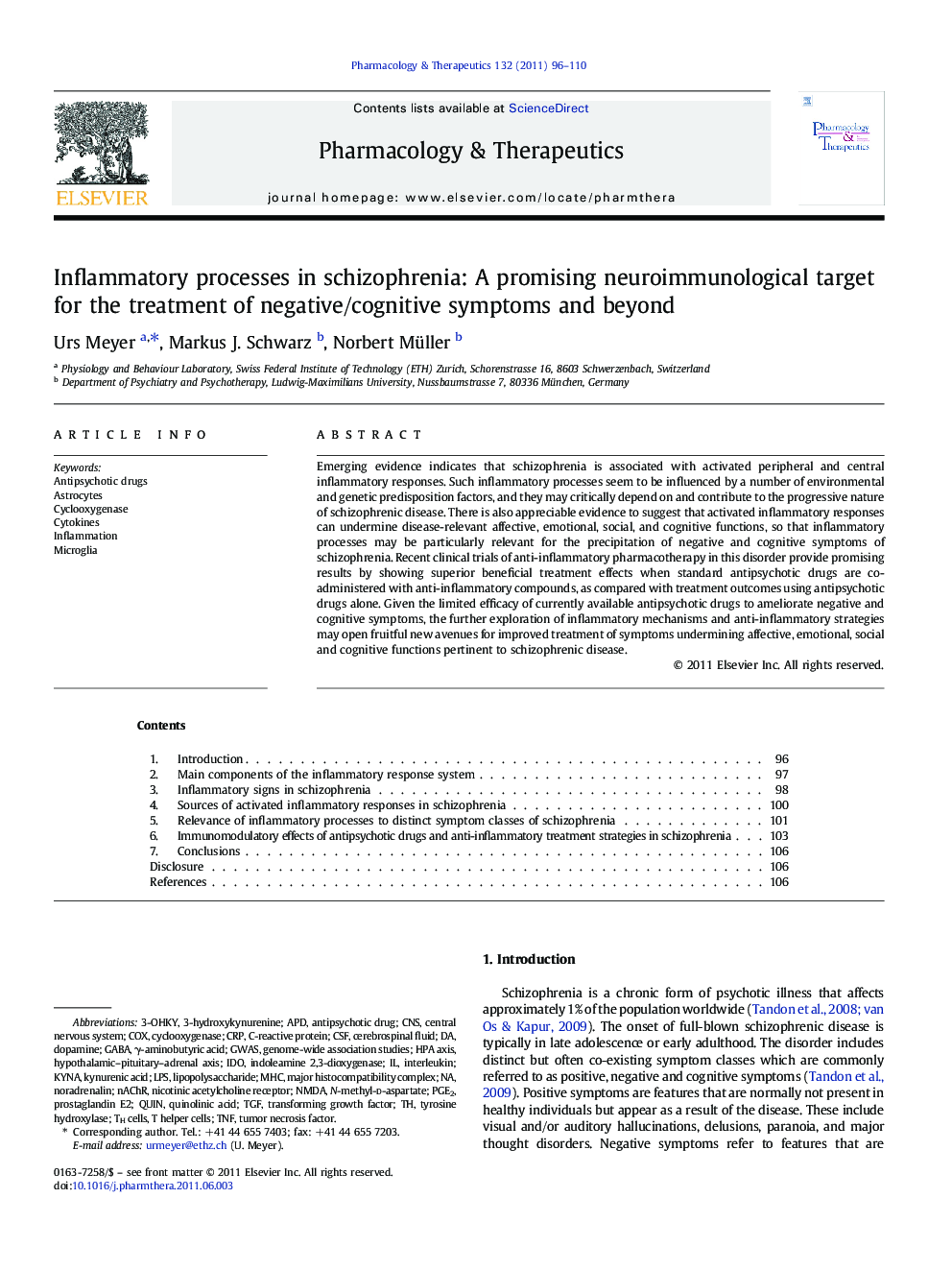| کد مقاله | کد نشریه | سال انتشار | مقاله انگلیسی | نسخه تمام متن |
|---|---|---|---|---|
| 2563627 | 1127548 | 2011 | 15 صفحه PDF | دانلود رایگان |

Emerging evidence indicates that schizophrenia is associated with activated peripheral and central inflammatory responses. Such inflammatory processes seem to be influenced by a number of environmental and genetic predisposition factors, and they may critically depend on and contribute to the progressive nature of schizophrenic disease. There is also appreciable evidence to suggest that activated inflammatory responses can undermine disease-relevant affective, emotional, social, and cognitive functions, so that inflammatory processes may be particularly relevant for the precipitation of negative and cognitive symptoms of schizophrenia. Recent clinical trials of anti-inflammatory pharmacotherapy in this disorder provide promising results by showing superior beneficial treatment effects when standard antipsychotic drugs are co-administered with anti-inflammatory compounds, as compared with treatment outcomes using antipsychotic drugs alone. Given the limited efficacy of currently available antipsychotic drugs to ameliorate negative and cognitive symptoms, the further exploration of inflammatory mechanisms and anti-inflammatory strategies may open fruitful new avenues for improved treatment of symptoms undermining affective, emotional, social and cognitive functions pertinent to schizophrenic disease.
Journal: Pharmacology & Therapeutics - Volume 132, Issue 1, October 2011, Pages 96–110